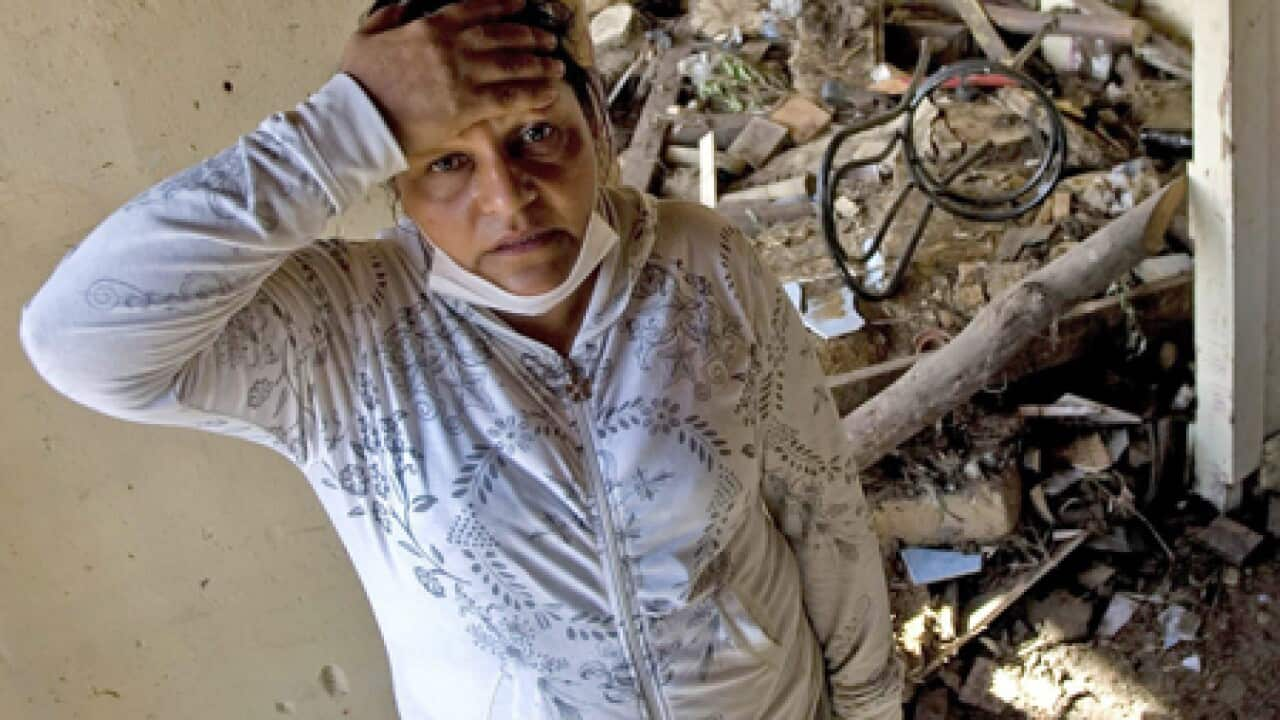Flags were lowered across Chile, as the country began three days of mourning for the hundreds who died in last week's powerful earthquake and tsunami.
The national blue, red and white flag fluttered at half-mast from buildings across the country, including those standing among ruins created by last week's 8.8-quake, one of the strongest ever recorded, and the tsunami it spawned.
Religious ceremonies, some taking place in the open air, brought Chileans together to remember their dead -- now officially estimated at 452 after officials revised down a first toll of 802 when some missing turned up alive.
The population of some 16.8 million showed a wave of solidarity alongside growing public and international aid efforts, and looters handed back stolen goods under threat of arrest.
Bachelet to hand over power
President Michelle Bachelet, who is due to hand over power to Sebastian Pineda, visited a depot of returned goods, including mattresses, TV sets, and washing machines, in the coastal city of Concepcion.
"This looting has nothing to do with survival," Bachelet told journalists, estimating the total value of the objects to be almost two million dollars.
Bachelet promised to punish criminals, after riots and looting immediately after the quake provoked curfews and the deployment of some 14,000 soldiers -- a move unprecedented since the 17-year dictatorship of Augusto Pinochet that ended in 1990.
Demolition and reconstruction efforts slowly began in the city and other badly-hit areas.
Aid continues to pour in
Aid has poured in from across the world but, with severed bridges, fractured freeways and villages washed off the map, the proud nation has struggled to deliver relief to many, including some two million homeless survivors.
Bachelet winds up a four-year term on Thursday facing criticism for a slow response to the quake and amid a controversy over a failed tsunami warning. The Chilean Navy on Friday fired the head of the agency in charge of issuing catastrophe warnings.
Concepcion still flood ravaged
Residents of Concepcion have organized sometimes violent protests against the slow trickle of aid, blocking traffic with burning tires and setting shopping centers aflame.
With half a million homes destroyed, sanitary conditions for many still living on the streets were a growing concern.
"We have cases of gastroenteritis, respiratory problems, and we've had heart problems due to fears caused by recent aftershocks," Carlos Barra, a health center doctor in Concepcion, told AFP.
Aftershocks hampering rescue
Aftershocks following the February 27 quake have complicated the rescue efforts, with more than 200 rattling the nation in the quake's aftermath.
The government on Saturday began a vaccination campaign against hepatitis and tetanus in the seaside resort of Constitucion amid fears of viral infections.
In another town, Talca, a group of elderly people slept on the street as they kept watch over the smashed remains of their homes.
"We see army trucks, police vans and municipal officials drive by on the main road, but no one has stopped to see how we are," said 80-year-old Maria Fresia Hil Castro.
Electricity supplies restored
Some 80 percent of total electricity supplies were restored by Saturday, officials said as they shortened a curfew in Concepcion from 18 to 13 hours, and reduced curfews in Arauca, Nuble and Bio Bio provinces.
Aid-filled trucks left Sunday from the capital Santiago, where bikers in leather collected donations, students and scouts volunteered to distribute aid, and buses and cars sped about with signs reading "Courage, Chile!"
A hastily-organized weekend celebrity-filled telethon meanwhile raised 30 billion pesos (58 million dollars), twice as much as it had aimed for and enough to build 60,000 basic houses.
UN chief Ban Ki-moon vowed to help recovery efforts after touring disaster areas on Saturday and pledging 10 million dollars in immediate help from the United Nations.
"Words fail to describe my feelings after what I have seen," he told survivors, promising to report his findings to the UN General Assembly this week and discuss how best to help with reconstruction.

